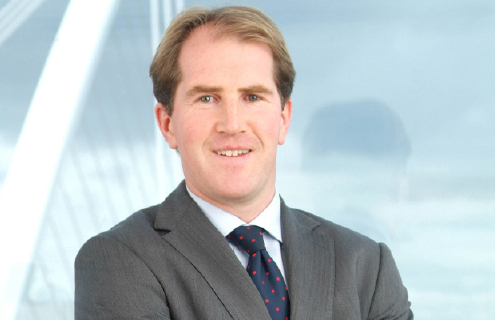Dillon Eustace
Brian Dillon
This date refers to the date of the issue the inte
As Ireland remains firmly in the European Union, its funds industry continues to grow in complexity, diversity and sheer size, says Brian Dillon of Dillon Eustace
 Image: Shutterstock
Image: Shutterstock
In your opinion, what do asset managers most demand, and value, from their service providers?
I think that it is not so much what asset managers demand from their service providers, rather more a question of what they have come to expect from their service providers here in Ireland.
The Irish fund industry has, since its inception over a quarter of a century ago, developed a global reputation for expertise and knowledge in areas such as fund administration, custody, depository services, compliance oversight, tax advisory, audit and legal services. The industry has evolved to a stage where the companies and firms operating here and competing globally across all sectors are recognised as market leaders.
The intense competition serves to improve the quality and efficiencies of services. Industry service providers are well resourced with well-educated and highly experienced fund professionals who are equipped to support their asset manager client requirements in a prompt and cost-efficient manner. Clients expect their advisers to provide industry-focused, innovative, solution-driven and prompt advices from their advisers.
What kind of things do your clients typically outsource, and what do they keep in house?
The majority of our asset management practice clients are based outside of Ireland. Their in-house counsel would engage with our fund lawyers at an early stage on product planning and on structuring, drafting and negotiation of fund documents, and representation with the central bank. In addition, non–EU clients will often seek guidance on the ever-increasing amount of EU regulatory and legislative requirements that impact their Irish fund products.
Has this changed in recent years?
As a result of the increasing volume and complexity of regulations and legislation, clients will seek advice from other areas of our practice, most noticeably from fund governance and regulatory and compliance. In addition, we are being approached by companies seeking advice in circumstances where issues have arisen which might result in administrative or enforcement actions from regulators. Specialist lawyers here at Dillon Eustace can assist these companies. Our tax, foreign registration and Irish Stock Exchange listing departments remain busy assisting fund clients.
What kind of funds are you seeing the most demand for? Are you seeing an increase in ETFs?
The various fund teams at Dillon Eustace are continuously working on new funds for a broad spectrum of clients. We would certainly see an increase in alternative asset funds, hedge funds, funds of hedge funds and private equity structures. Lawyers here have also recently advised on several real estate funds and more complex index-tracking UCITS and exchange-traded funds (ETFs).
Increasingly, clients who are looking to establish ETFs will also seek expert listing advice from firms who have listing departments with relevant ETF experience, and we are fortunate enough to provide that here at Dillon Eustace. While we have always had a large Asian fund client base we are seeing more interest in UCITS from Singapore, India and Hong Kong. Also, long-only UCITS Irish collective asset management vehicles remain common.
Is there concern that if the UK reduces corporation tax that will have a negative effect on the funds industry in Ireland?
As you will know, the Irish corporate tax rate of 12.5 percent has been in place for many years. There has been much discussion from different countries about reducing their own tax rates to similar or even lower rates. There have even been suggestions from other countries that Ireland should increase this competitive tax rate. The Irish government’s consistent response, however, is that there will be no increase.
No more than trying to predict the implications should the UK, as expected, exit the EU in the coming years, it is difficult to predict what possible impact a reduction in the UK tax rate might have on the funds industry here in Ireland. While there are tax advantages for fund-related businesses operating here in Ireland, there are many other factors as to why the Irish industry continues to thrive, such as the knowledge and expertise mentioned earlier. In addition, and perhaps of fundamental importance, is the fact that Ireland remains a fully committed member of the EU—and this is expected it to continue.
← Previous interview
SmartStream
Christian Schiebl
Next interview →
Taskize
John O'Hara
 Image: Shutterstock
Image: Shutterstock 